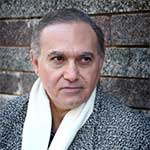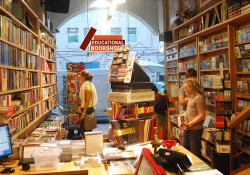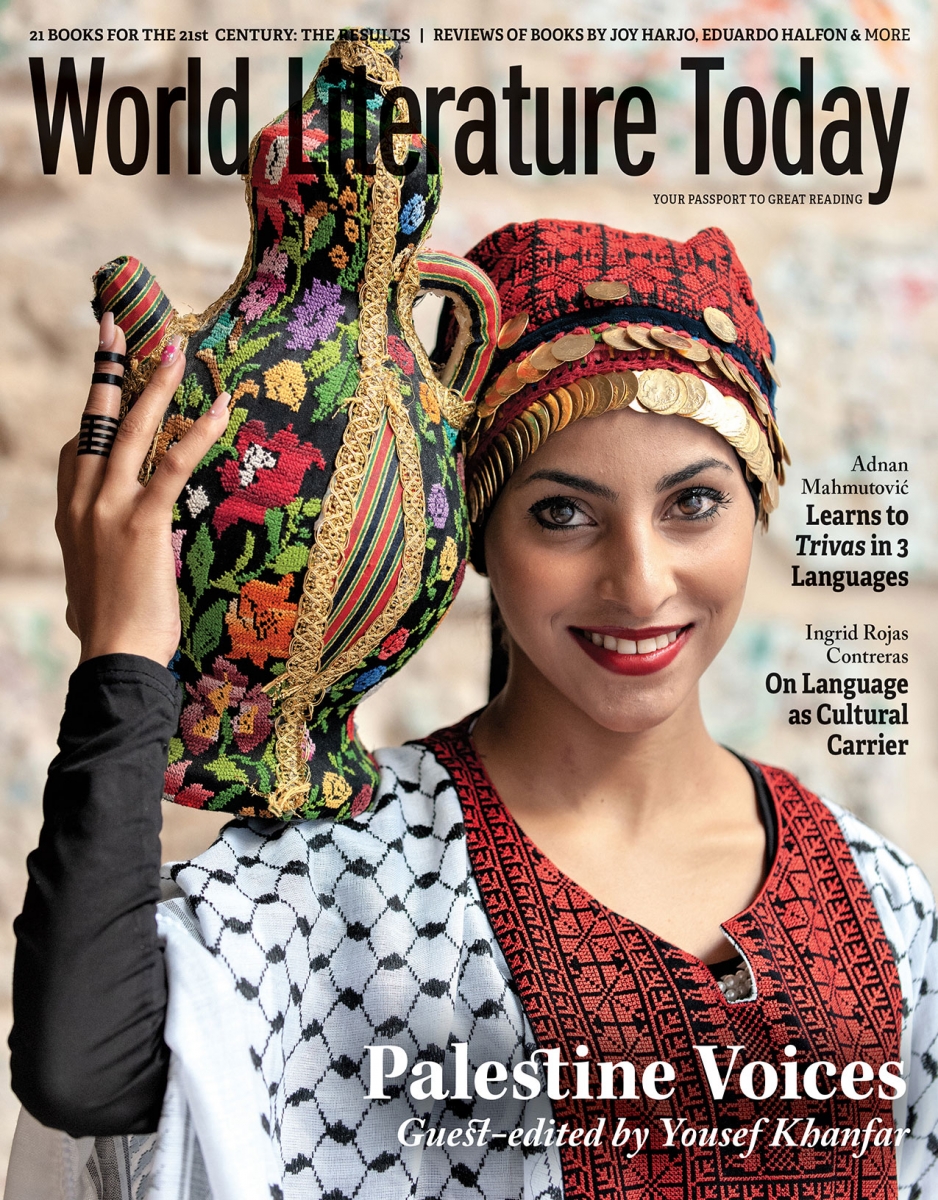Palestine Voices: An Introduction
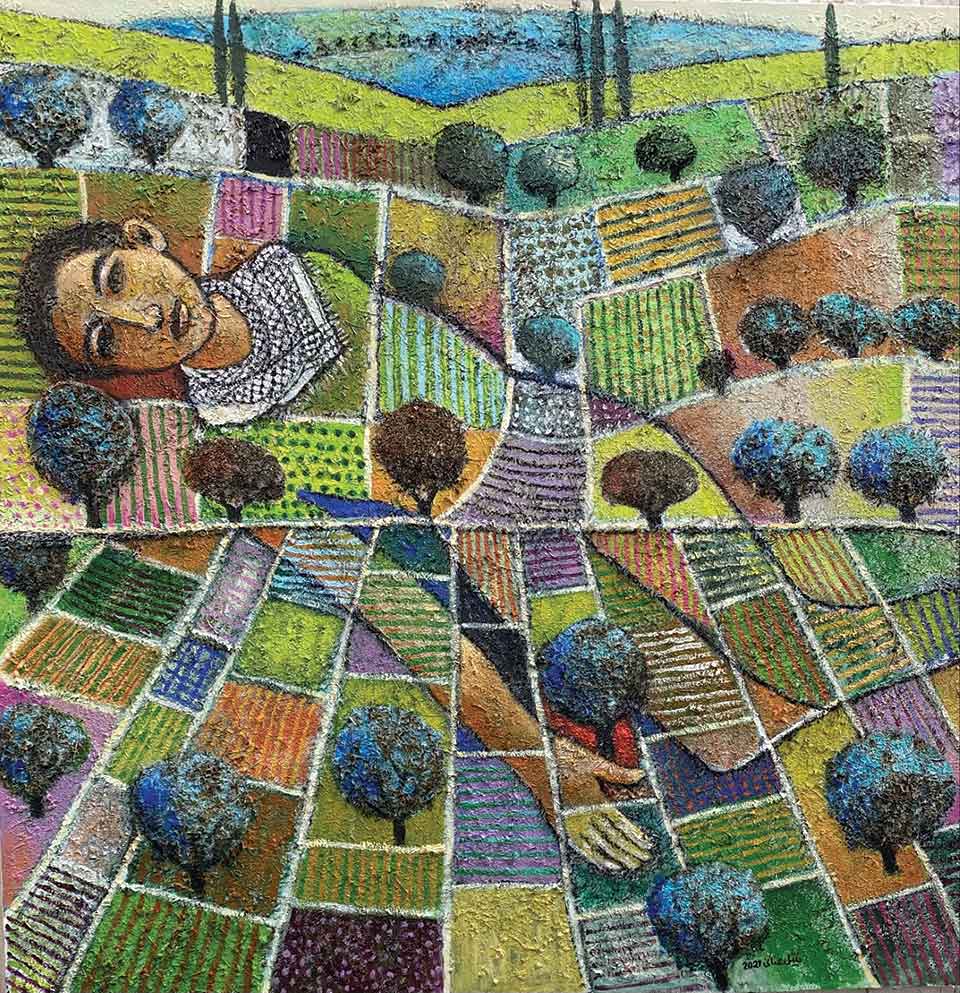
It has been said, Wisdom descended into the hands of the Chinese, the brains of the Greeks, and the tongue of the Arabs.
Palestinian writers, poets, and playwrights are fortunate to fall into the orbit of the Arabic language. In Palestine, the land, rivers, and trees speak Arabic. While the wealth of most languages comes to less than a million words, the Arabic language employs about twelve million words. Alas, a greater part of Arabic poetry and literature is simply untranslatable due to the depth, abundance, and richness of the language. The Arabic language has surpassed the meridian of glory.
As much as I love reading beautiful poetry from different parts of the world, to me, there is no other poetry where I can literally hear music like classical Arabian poetry. While the language is used in science, medicine, and engineering, it is still the supreme language for the mystical tongue of romance, love, and desire. Reading an Arabian love qasida in the night, under the stars, is like a long caress, sashaying softly with an intoxicating charm, across one’s warm body and soul.
Even though we endorse the importance of translation, some view it as the enemy of the writer and especially the poet. Translation is an affair of hand-to-hand combat where one entity forces another entity into a linguistic migration to conform to a new nation, losing its authenticity and identity. Most essentially, instead of voicing the passionate flames of the poet, translation voices their ashes. Nevertheless, I salute the translators who keep the native aroma of these writers and poets.
Palestine was born in the purple. Palestinians are worshipers of liberty and friends of the oppressed. They believe justice is the only temple and humanity the only religion. They use their burdens for a pillow and hope for their blanket. With tender hearts they stand strongly, and with resistance they march proudly. Under colonization, even though they walk daily to the gallows, they would rather love life where death is king than live life where love is dead. They are one of the most hospitable, generous, and friendliest of all nations.
Even though they walk daily to the gallows, Palestinians would rather love life where death is king than live life where love is dead.
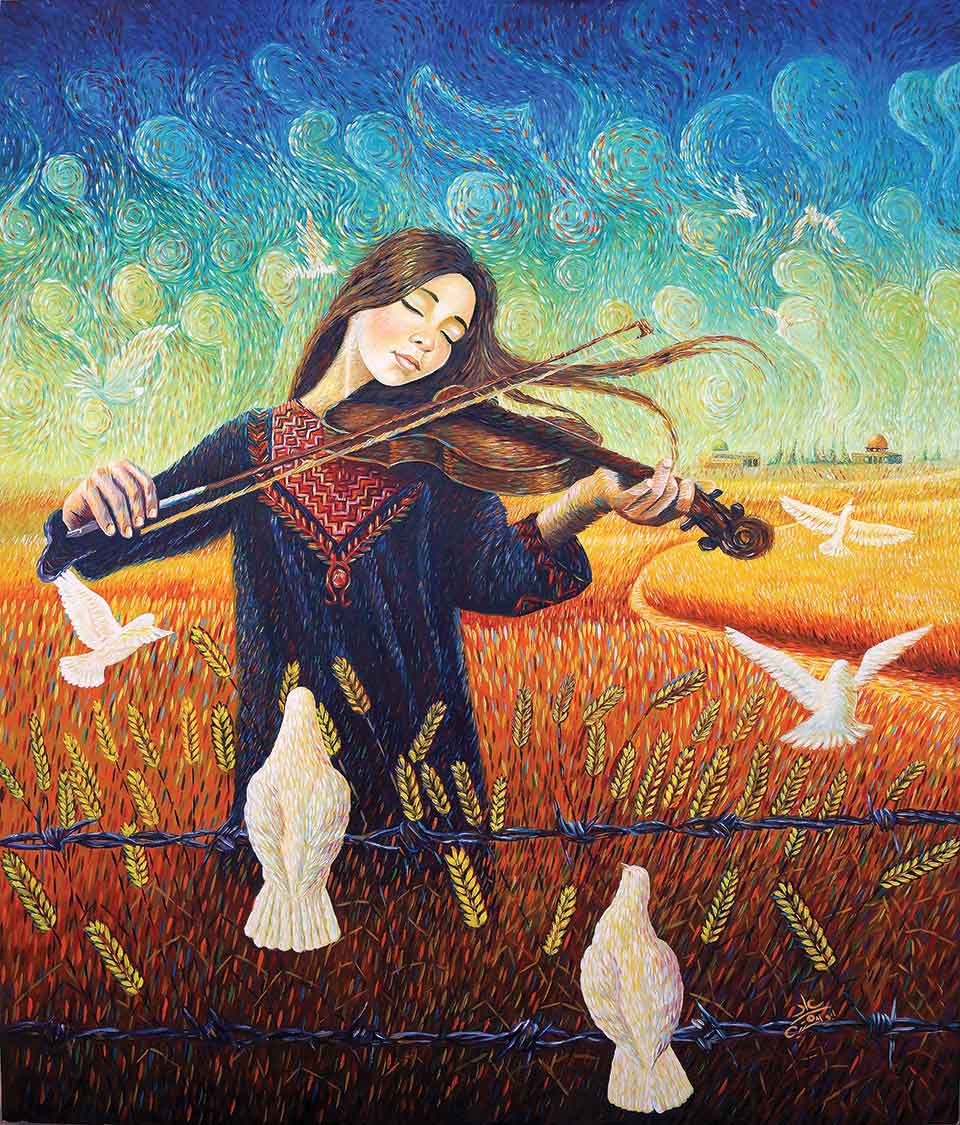
While most writers offer their writing to the masses, Palestinian writers offer their very souls. For anything that is born from the depths of the heart has a sovereign life. They invite readers to hold up a mirror and have an honest discourse with themselves. Since the Nakba, Palestinian literature has blossomed and increased in popularity around the world. These magical narratives might not save lives, but they save souls. Courage, justice, and liberty throb in their blood and pulse in their verse and prose. Such magnificent writing and art can only be born from a nation that has been cultivated throughout the ages—colonized much, suffered much, loved much, and ripened much.
For thousands of years, storytelling has been the currency of Palestine. The storyteller, Hakawatie, male or female, shapes fertile minds with fascination and beauty. Some of the stories are exquisite, laced with a dash of adventure, spices of mystery, and sensations of the heart. Hakawaties are able to transport souls from the harshness of reality to a dreamy world of myth and legends.
For thousands of years, storytelling has been the currency of Palestine.
When violence breaks out and Palestinian cities are terrorized and bombed by the colonizer, that is when the Hakawaties come alive. They shield and tell the children, who are soaked to the skin with anxiety from the gray air of carnage, epic tales fashioned with an ambience of imagination and safety. They tell them stories of loveliness that tower above darkness, to inspire and set them free of fear. They allow them to elude the terrors in their minds while still facing their storm of persistent innocent questions.
Today the world views Palestinians as Souls of Principle and not only as Human Bodies—principles of truth, justice, and liberty. Principles of humanity, dignity, and morality. While colonization still wrings the blood and marrow of their lives, they continue their resistance through the pen, brush, camera, and the like. Because in the Holy Land, under the dark shadows of colonization, every day for the Palestinians is a Golgotha.
As colonization slowly dehumanizes Palestine and the Palestinians, who are the victims of victims, some of the most iconic and legendary figures in history have emerged. Their flames of resistance inspire many generations, and their words, art, and actions have influenced nations and leaders around the world, from Mahatma Gandhi, Nelson Mandela, Martin Luther King Jr., Malcolm X, Muhammad Ali, James Baldwin, and Alice Walker. During Angela Davis’s trial, Palestinians stood in solidarity with her and showered her with letters of support from activists, prisoners, and artists. Today, Free Palestine and Black Lives Matter still walk hand in hand, twin sisters in a mutual struggle.
And who would forget when George Jackson, a black revolutionary writer, was assassinated in 1971 by prison guards? Among the ninety-nine books he had in his prison cell, one was Enemy of the Sun, named after the eponymous poem by Palestinian poet Samih al-Qasim. Although the poem was mistakenly translated and circulated in Black Panther newspapers and other publications under Jackson’s name, he and other cultural leaders were deeply influenced by Al-Qasim’s poetry. Ultimately, the greatest art and artists are the ones with many imitators.
Liquid transforms through different phases of temperature; as water travels from subzero freezing to extreme blistering heat, both extremes are dangerous and deadly. The same is true of language, which can dwell in different phases of the extreme, from deafening silence to malicious propaganda. And nothing is more shameful than when no intellectuals, writers, or artists raise a protest by pen, brush, or platform to denounce the unbearable oppression of their fellow human beings.
Palestinian writers, poets, and artists face restless years of inner searching. They believe beauty can be born out of chaos, and they try to harness it. Under colonization, their lives are suffused by growing anxiety about the political environment and their own responsibility as artists. As they transpose their lives into writing and art, by expressing their true inner feelings and thoughts, they are able to endure the oppressive burden imposed upon them and see their own experiences in a fresh, significant, and powerful way. They are ambassadors of positive change to their nation and the world.
In this mosaic of Palestine Voices, we will travel to Khartoum, listen to The Bodies, witness the crowning of a Young King, swing on a Salt Swing, read Letters from the Sea, appreciate the beauty of The Braid, search for treasure under The Cypress Tree, and wonder about The Classroom That Disappeared. On Another Morning, we meet to harvest the Late Olives, visit a Photo Studio where No One Looks at Their Back in the Mirror, learn from A Stone Necklace from Palestine, meditate at Fatima Seminary, marvel at what’s Stranger Than Fiction, listen to an Offering while Barely Breathing, and hold up a mirror for Reflections on Palestinian Identity. Finally, we dream of Taking Back Jerusalem, in the belief that There Will Be Peace in the Holy Land, and enjoy the delicious cuisine of Palestine on Your Plate, which reminds me of my childhood days with my siblings at the dining room table, where we pulled each other’s hair for the largest portion.
Palestine Voices will hum within your soul; they are too enchanting to escape astonishment. There are pages and pages drenched through and through with radiance and beauty. These voices are designed to captivate and not to convince, for I believe art can change the future; art is a teacher. Palestinian writers, poets, and artists are children of the land, the sun, and the sea whose companions are love, passion, and dreams. Justice and everlasting freedom shall be theirs, though for now, they must escape the atrocities of colonization through the gateways of solitude.
As tragedies happen to the best—like a furious lion captured in a strong steel net and like a delicate butterfly caught in a fine silk net—and as Palestinians are snared in the evil net of time, they pray and hope for the swift wheels of justice and freedom, for hope is oxygen. The only remedy for refugees, exiled and uprooted, is a free homeland. The dream and hope of every Palestinian is to be back to their roots and their ancestors’ land, regardless of where they are, how long it will take, and how old they are. And as for me, I would rather live in a small shack in my beloved Palestine than be the God of Genesis.
So, come along.
Come on, all men and women of truth.
Come on, young spirits of Palestine.
Come on, young budding souls of Her Majesty.
Reach out to the brush and canvas, camera and images, pen and papers.
Fly high with your dreams, trust the flames, and follow the path.
I have two wings, for you and Palestine.
Do you have sky . . . ?
